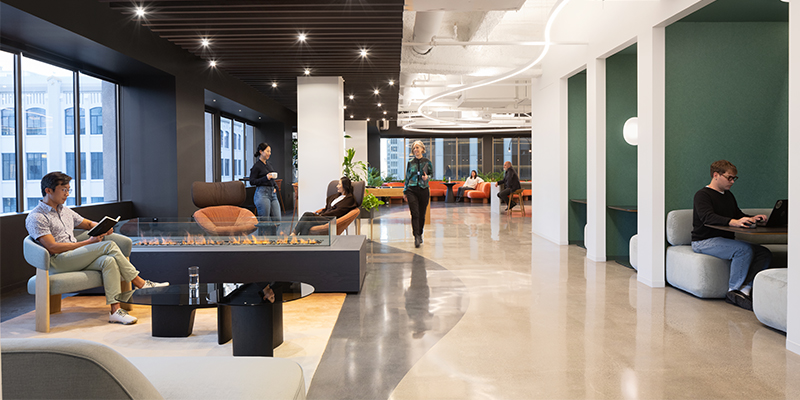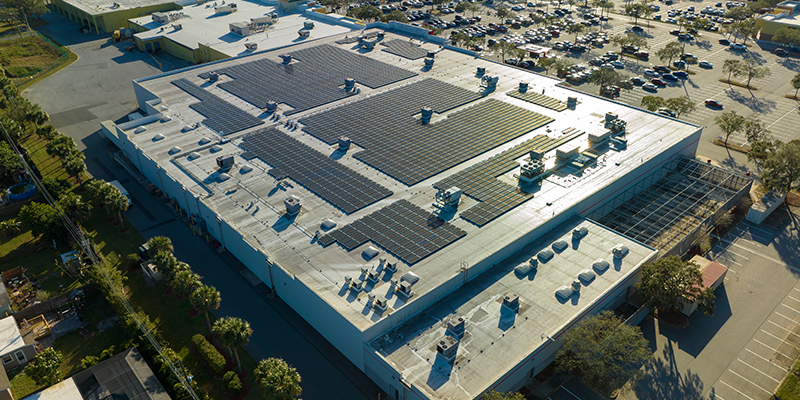By Kathryn Hamilton, CAE
At I.CON Central this week in Columbus, Ohio, Global Client Strategist and Senior Economic Advisor for CBRE Spencer Levy framed his keynote with a theme few would expect in a discussion about commercial real estate: the Beatles.
Levy opened by telling the audience that much like the iconic band, CRE thrives on emotional resonance, innovation and the ability to adapt to changing landscapes. As he put it, “persuasion is not an intellectual process; it’s an emotional one,” noting that the Beatles mastered this principle in their music and that the real estate sector should emulate them.
Levy reflected on the past decade of commercial real estate gains. Between 2012 and 2022, 75% of returns came from cap rate compression. But as Levy emphasized, the next decade of growth will come not from compressing rates further, but from operational excellence.
Levy emphasized that just as the Beatles evolved, real estate investors must embrace diversification and creativity. Alternative asset types such as senior housing, student housing, industrial outdoor storage (IOS) and data centers are emerging as critical components of a modern portfolio. Investors who recognize these shifts – and manage operations actively – are positioned to outperform. “Everything is operational real estate now,” Levy observed, noting that institutional investors are increasingly buying pieces of businesses, not just the buildings themselves.
Levy is particularly fond of IOS, which he noted is often overlooked, highly supply-constrained and increasingly attractive to investors. He underscored that the market is not static: while cap rates are unlikely to compress significantly further, net operating income can be expanded through strategic top-line growth and expense management.
Macro Trends: Life Goes On
Levy then took a step back to consider macroeconomic factors, echoing the Beatles’ philosophical lyric that “life goes on.” Despite global uncertainties such as trade tensions, regulatory shifts and interest rate fluctuations, the fundamentals of commercial real estate remain intact. Interest rates, while higher than recent historic lows, are beginning to ease, which may stimulate deal flow and investment activity. Artificial intelligence and productivity gains are poised to reshape the economy, potentially boosting GDP in ways that echo past technological transformations. Yet Levy reminded investors to stay grounded: population trends, infrastructure and labor markets are the enduring drivers of opportunity.
For Levy, risk management is as much about local insight as global awareness. He cited the example of foreign investment, noting that when President Donald Trump introduced his tariffs plan in April 2025, immediate hesitation came from international buyers; however, structural factors such as a weaker dollar, favorable regulations and safe-haven perceptions suggest that capital will return. “Math wins in the end,” he said.
Come Together: Columbus, Ohio, as a Hub of Opportunity
Throughout his remarks, Levy frequently referenced the conference host city of Columbus, Ohio, portraying it as a microcosm of the broader industrial and logistics opportunity in the Midwest. Columbus exemplifies resilience and strategic advantages: low energy costs, improving infrastructure and a growing manufacturing base are all attractive to investors. Levy highlighted the city’s ability to attract high-quality labor, noting that tech companies and industrial operators alike evaluate workforce quality before committing to expansion.
Levy also pointed to recent infrastructure investments, including airports and transportation networks, as key enablers of growth. Cities that invest in connectivity – Kansas City, Nashville, Salt Lake City, and now Columbus – improve their attractiveness to both domestic and international investors.
With a Little Help from My Friends: Operational Real Estate and Collaboration
A recurring theme in Levy’s presentation was the concept of operational real estate; that value lies not just in owning physical assets, but in actively improving and managing them. Data centers, manufacturing facilities and multifamily properties increasingly require hands-on attention.
Levy also addressed risk management with historical perspective. From the 1987 tax law changes to the 2007 financial crisis, he emphasized that missteps in regulation and market timing can have outsized consequences. He said that informed operators who adapt strategically can thrive even amidst uncertainty. Bonus depreciation, infrastructure improvements and careful management of interest rate exposure all provide levers to protect and grow value.
Revolution: Industrial Innovation and Yield
Returning to industrial markets, Levy emphasized the rising value of nontraditional asset types such as manufacturing-adjacent properties. These investments may involve higher capital costs or operational complexity, but they often deliver superior yields. Levy referred to a Chicago developer who planned a multifamily project close to a manufacturing facility under development. He achieved an 8% yield on cost by acquiring land at minimal expense and leasing it to the manufacturer before breaking ground. The lesson: looking beyond traditional properties and investing in essential assets can lead to bigger rewards.
Data centers, Levy noted, are another area of debate. The rapid growth of AI and the cryptocurrency sector have created unprecedented demand, yet investors must navigate power constraints, energy costs and technological evolution.
All You Need Is Operational Love
Operational excellence paired with thoughtful investment and strategic insight can drive the next wave of commercial real estate success.
From industrial outdoor storage to Columbus’s emerging logistics hubs, from multifamily housing to AI-driven data centers, Levy’s message was clear: the path forward requires both analytical rigor and creative thinking. Investors who embrace operational opportunities, remain attentive to local conditions and adapt to macroeconomic changes will be best positioned to succeed.

This post is brought to you by JLL, the social media and conference blog sponsor of NAIOP’s I.CON Central 2025. Learn more about JLL at www.us.jll.com or www.jll.ca.








